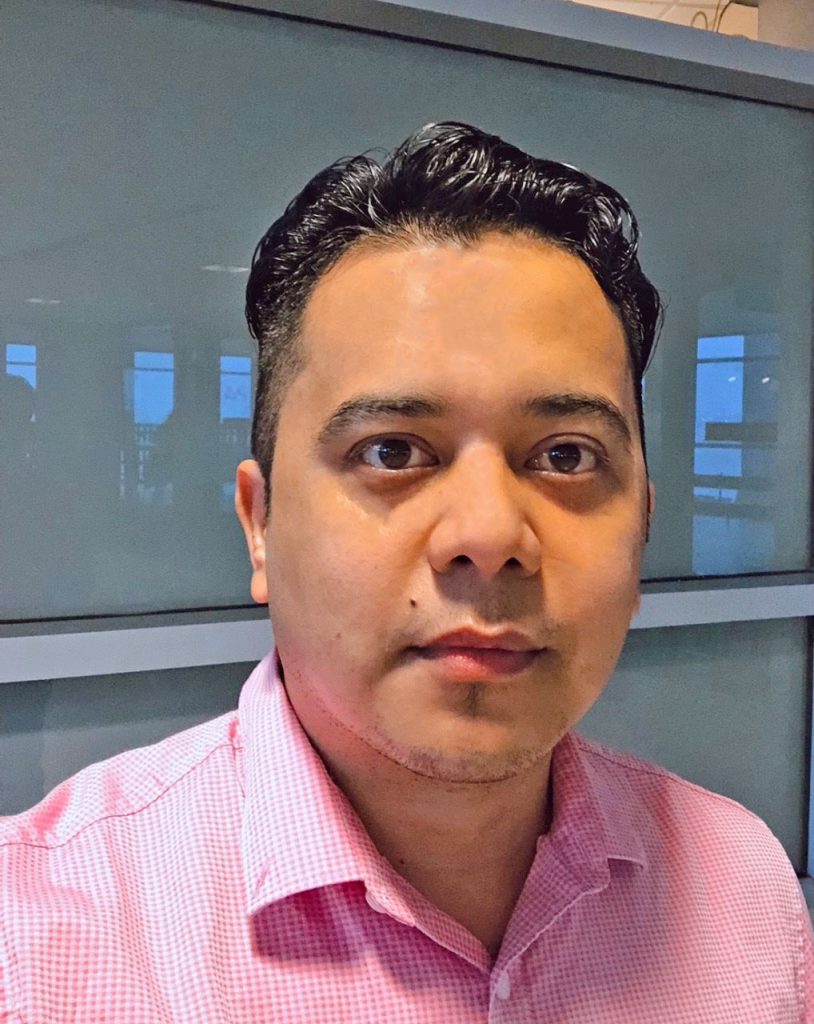Jesus Hernandez, RN, Takes the Lead and Reflects on Building a New COVID-19 Unit from the Bottom Up
Just a few months after becoming the assistant director of nursing, Jesus was asked to become the clinical lead at The New Jewish Home’s COVID-19 Recovery Unit.
Jesus Hernandez, who joined The New Jewish Home in 2012 as a nurse manager, stepped up in October 2020 to become assistant director of nursing. Just a few months later, while still adjusting to his new role, he was asked to take on another big challenge—to serve as the clinical lead of The New Jewish Home’s COVID-19 Recovery Unit.
Growing up in the Philippines, Jesus intended to follow in the footsteps of his mother, and become a lawyer. But after college, he visited an aunt in the U.S. who was a nurse, and he had a revelation. “Her phone rang non-stop with calls for her to come to work,” he said. “I was never interested in health care until I saw the demand. That was a wake-up call for me that it was a good time to shift to nursing instead of pursuing law school.” He discovered that nursing was a profession that truly fulfilled his desire to help others and engage in meaningful work.
When Jesus took on the task of building a COVID-19 Recovery Unit from scratch last winter, he began by thinking logistically about how to meet the patients’ clinical needs. “The biggest barrier was that the unit had to be treated as a separate building. We had to replicate our sub-acute unit in this separate space. Fortunately, we had a good support system.” He found that the administration was very responsive to his requests, and supportive of his efforts.
At first, he said, staff members felt apprehensive about interacting with patients with COVID-19 who would be admitted to the unit. “There was a misconception initially, but we went in with open minds, and we had open discussions with our infection control specialists.” In fact, Jesus and the staff learned, the patients on the unit were not in a highly infectious phase of the disease. In addition, the unit had access to all the personal protective equipment they needed. “When we saw that the unit was prepared for this task of caring for COVID-19 positive patients, we knew we could succeed,” he said.
Thanks to extensive experience as a nurse manager, Jesus thought he knew what to expect in the new COVID-19 unit. But even he was surprised at some of the unusual issues he and his staff encountered, including unconventional requests from patients and their families. He found that his most useful tools were transparency and communication. When he asked directly for what his patients needed or wanted—a special piece of equipment, for example—he was generally able to obtain it and keep them happy.
“When vaccines started becoming available,” he said, “patients were arriving from the hospital having had a first dose of the Pfizer vaccine. We weren’t offering Pfizer, but we worked hard to make it possible for those patients to get their second dose, because part of their recovery was getting them fully vaccinated. That was an enormous task, but our pharmacist made every effort and worked with an outside pharmacy to get it done. I’m very proud that we could give that to our patients.”
In fact, the staff ended up with a vaccine surplus. “We had to use up the doses,” Jesus said, “so we went above and beyond and offered vaccinations to family members of patients scheduled for discharge. We had the creative freedom to figure that out.”
Thankfully, the need for the COVID-19 Recovery Unit subsided, and the program closed in May of 2021. Having returned to his previous role, Jesus is happy to be able to work closely again with colleagues, like the director of nursing and the co-assistant director, from whom he was physical separated in the COVID-19 unit. He acknowledged that the experience honed some of his skills, including motivating staff, communicating effectively with his superiors to get their support, and responding creatively to unusual and challenging requests.
Reflecting on the experience, Jesus said that he had a renewed sense of respect for his colleagues. “Everyone who was there went above and beyond so that the project could succeed. People stepped in and stepped up. We did our best, and that’s a rewarding feeling,” he said with pride.
“It was a monumental task running that unit from the ground up. At the end of the day when we were able to successfully discharge patients and receive positive feedback from their families, it was all worth it.”
The New Jewish Home continues to admit a smaller number of COVID-19 patients from hospitals at this time. We are prepared to support our hospitals and have the capacity to care for more COVID-19 patients, should cases in the community increase.
At The New Jewish Home, our dedicated team is at the heart of everything we do and helps us serve and care for 8,000 New Yorkers every year. Be part of one of the largest nonprofits serving seniors in New York and help make a difference in the lives of others: Explore career opportunities, volunteer, or donate to support our mission.

